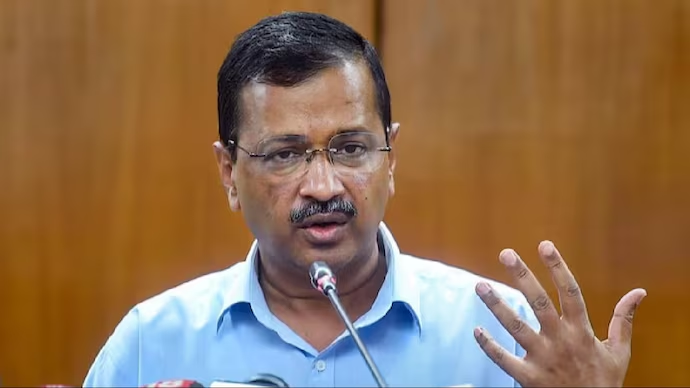Newsmatro

The Supreme Court commenced a significant hearing on Tuesday regarding the petition filed by jailed Delhi Chief Minister Arvind Kejriwal. Kejriwal’s petition challenges his arrest by the Enforcement Directorate (ED) on March 21, linked to the Delhi liquor policy case.
The apex court’s attention was particularly drawn to Kejriwal’s request for interim bail due to his status as the sitting Chief Minister of Delhi and the necessity for him to campaign for the upcoming Lok Sabha elections.
A two-judge bench comprising Justices Sanjiv Khanna and Dipankar Datta presided over the hearing, emphasizing the extraordinary nature of the case.
The bench noted that Kejriwal was not a habitual offender and highlighted the urgency of considering his release on an interim basis, especially given the timing of the elections.
However, the Enforcement Directorate opposed the court’s suggestion, asserting that politicians should not be granted special privileges compared to ordinary citizens.
The ED questioned whether all MPs and MLAs facing prosecution should be released on bail merely for campaigning purposes.
Senior lawyer Abhishek Manu Singhvi, representing the Aam Aadmi Party (AAP) supremo, was called upon to respond to the issues raised by the Enforcement Directorate.
The court raised concerns about the delay in questioning and probing Kejriwal, prompting the Additional Solicitor General SV Raju, representing the ED, to explain the investigative process.
Raju clarified that Kejriwal’s role emerged during the course of the investigation and that the focus was initially not on him.
The court expressed skepticism regarding the delay in questioning Kejriwal and requested access to relevant files before and after his arrest.
The hearing also delved into the specifics of the case, including the involvement of Sarath Reddy, a Hyderabad-based businessman turned approver in the Delhi liquor policy case.
Raju argued that Kejriwal’s alleged demand of 100 crore rupees became apparent as the investigation progressed.
The Supreme Court’s consideration of granting interim bail to Kejriwal comes in the wake of his petition challenging his arrest and remand, which was rejected by the Delhi High Court on April 9.
Kejriwal’s petition contends that his arrest was “motivated” and based on contradictory and belated statements from co-accused turned approvers.
Currently lodged at Tihar Jail, Kejriwal seeks his release and a declaration of the arrest as “illegal” through his petition before the Supreme Court.
The court’s decision on granting interim bail is eagerly anticipated, especially amidst the ongoing Lok Sabha elections.